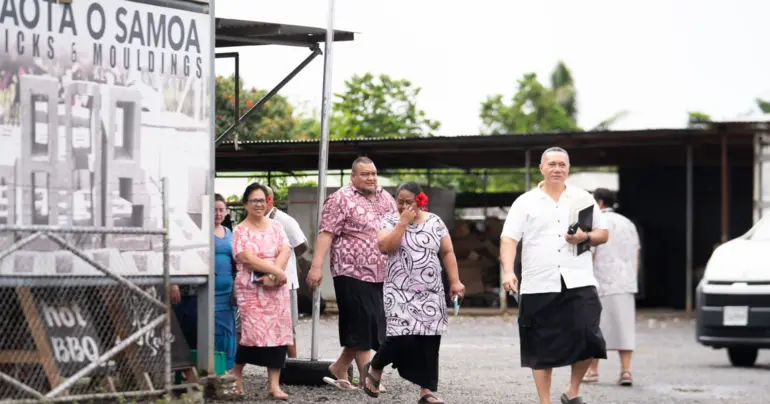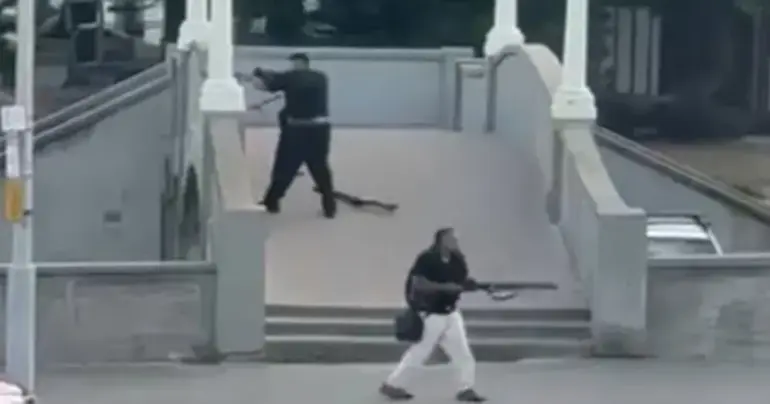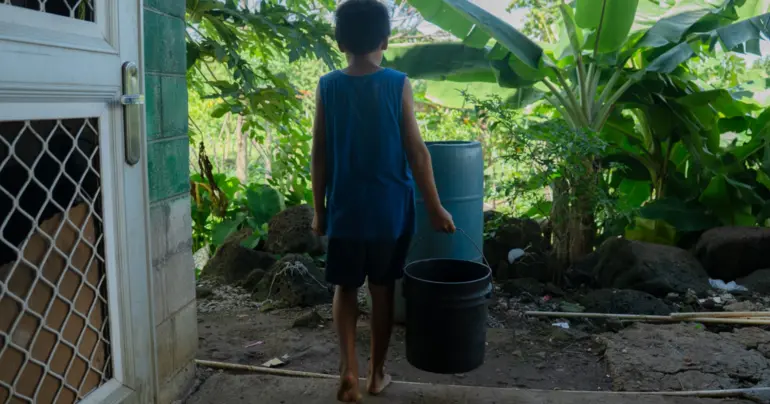P.S.A. standing in way of progress
It was a breath of fresh air to have the former Speaker of the Parliament and a Human Rights Protection Party (H.R.P.P.) stalwart sitting in the front row of a Government rally on Saturday.
Leaupepe Toleafoa Faafisi, involved as he was in attempts to prevent the formation of a Fa'atuatua i le Atua Samoa ua Tasi (F.A.S.T.) Government, put the past behind him on the weekend in making a call for post-election unity.
“The Government has come…we are a family…this is the Prime Minister’s [Fiame] village,” he said at the Government rally at the seat of Aana Alofi No. 2, speaking as one of the high chiefs from Fasitoo.
“The seed I wanted to plant in my village is harmony; do not let [things relating to] political parties destroy the harmony within the village.
“The Government has come with [Prime Minister] Fiame [Naomi Mataafa] as its leader… but the most important thing is harmony, whoever is an H.R.P.P. or F.A.S.T. [supporter] we have united as one on this day… for the betterment of the country.”
Leaupepe acknowledged that while there were some things about which he was not happy in relation to the change of Government, he concluded they paled into insignificance when compared to the importance of improving the nation’s welfare over the next five years.
But his words about the need to prioritise people’s welfare were in distinct contrast to another story on Sunday’s front page (“P.S.A. President defends body; cautions Government”).
The Public Service Association released a letter to the Prime Minister that made it clear it was not about to share in the former Speaker’s spirit of self-sacrifice and charity.
The P.S.A.’s letter made it clear that the trade union body, which should be solely focused on defending its members’ rights and interests, was instead behaving as a political actor, pressuring democratically elected officials.
Frustrated by a perceived lack of regard for the P.S.A. and its legitimacy by the Prime Minister the organisation’s president, Lealaisalanoa Karamellie Tuala, saw fit to give the nation’s leader a lecture about the infamous general strike of 1981.
"History taught us that the last time a government and a Prime Minister ignored [the] P.S.A. and was being dismissed, industrial action resulted and a new government came into power,” Lealaisalanoa wrote.
“[This is] a history lesson that this Government must take heed of.
“Be professional, meet with us. Ignoring the P.S.A. and being dismissive of the real and valid concerns we have raised will not do."
Veiled threats do neither this union nor this nation any favours.
At the core of the dispute between the P.S.A. and new Government is the issue of whether the Association, which claims 600 members, still has legal status as an organisation.
This matter will be dealt with in depth at a later date.
But one fact not in dispute is that the P.S.A. has not filed audited financial statements for the past four years.
That places it in clear breach of rules by the Ministry of Commerce, Industry and Labour requiring it to submit such annual documentation.
That the Prime Minister has questioned whether the P.S.A. is still legally recognised is hardly controversial.
But that the P.S.A. has seemingly sprung into life after years of inactivity raises a singularly important question: why now?
The simple fact is that, in our view, the P.S.A. has grown not just inactive but entitled.
It now presents one of the most significant roadblocks to necessary reform in Samoa.
It is no secret that Samoan public servants are well treated. Ministry of Finance estimates show that one-third of the nation’s budget is locked up in paying their wages.
In some Ministries that figure is almost double, raising the question of how much of taxpayers’ money is being spent on actual development projects.
According to the World Bank, public servants’ salaries have grown at the generous rate of 6 per cent per annum.
“The trend [...] reflects increases in the salary levels for civil servants, especially at the higher level grades,” the Bank noted.
It is clear that the public service is now retarding the development of a sustainable private sector in this nation.
But most concerning of all is its focus on the sacking of a handful of executive public servants who were, in our view, obviously unable to perform their duties due to conflicts of interest. That reveals an organisation out of touch with its membership.
It is a trade union’s job to protect and represent the great mass of its members, not to threaten nuclear politics when a couple of extremely highly-paid public executives out of a total workforce of 4,000 lose their employment and not without reason.
To wave about the 1981 strike that ushered in the rule of the Human Rights Protection Party (H.R.P.P.) in the same letter as the P.S.A.’s concerns about the sacking of these senior bureaucrats does an injustice to history.
The industrial action of 1981 over wage negotiations was caused by widespread poverty and poor living standards.
Today these problems continue to exist - but they are not within the P.S.A. or among its employees.
They are issues such as income inequality between urbanised and rural people and the limited economic opportunities available to those who have not had the benefit of a publicly funded education.
Solving these problems will require prioritising Samoa’s needs above all else and an ethic of self-sacrifice.
That is evidently not something to be found among the P.S.A.’s leadership.










